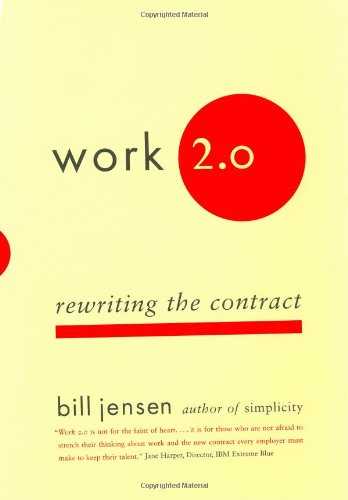Career Coaching & Career Advice Blog
The articles you need to create
a successful and fulfilling career journey.
You are a Talent Investor
What is a Talent Investor?
A talent investor is an individual or entity that strategically allocates resources and support to identify, nurture, and develop the skills and potential of individuals, often in the fields of business, technology, or the arts, with the aim of maximizing their long-term success and impact.
Why invest in your talent?
It would be easy to abandon the fancy notions that placed such a high value on our talent in the late ’90s and dismiss the talent war as a pleasant anomaly. That would be a big mistake.
We are in the midst of a growing, generational global labor and skill shortage which will not disappear any time soon. And, something happened during the last 7 years. The role of human capital in driving today’s leading companies and our economy rose to a level approaching the role of financial capital.
So, what’s next?

Work 2.0: Rewriting The Contract
By Bill Jensen
Bill Jensen published Work 2.0: Rewriting the Contract, a new look at the employer/employee work relationship. In his excellent book, he presents an argument for maximizing the return on human capital through a relationship based on mutual accountability between the employers of talent and those who supply it. He also characterizes an individual’s employment as a talent investment. I will focus and expand on this last concept.
Employer/Employee Relationship
We are all familiar with the old model of the employer/employee relationship. The side with the job/pay cheque to offer had all the power. Except at the highest levels of achievement or rank, job seekers were not only applicants, but supplicants. And when you were hired into one of these jobs, you were grateful, and hung on for dear life.
Talent Wars
Then, came the talent wars. As a result of a historically long booming economy, proliferation of new and rare skill sets and a demand>supply environment, talent became all powerful. Employers reacted by creating Disney-type workplaces and allowing title and compensation schemes to get out of whack. There were downsides of course, but in general we felt pretty good about ourselves, didn’t we. These talent wars opened-up a window into what the future could be like…proper recognition, reward and responsibility for the value we bring to our employers. And then, it ended.
Of course, I am speaking in generalities. Most of the workforce continues to work in old-model work relationships and there are today many high-flying companies treating their key people like royalty. Like all trends, we can’t speak in absolutes.
So, what is next? Hopefully you, I and the folks making the hiring decisions have learned something. In today’s knowledge-based economy, your talent, knowledge, skills, relationships, passion and energy are what drives companies. But, its not all about you. There needs to be a new exchange of value.
Talent Investment
Work 2.0 introduces the concept of the talent investment. When you work for an organization or a specific project, you are making one of the most important investments of your life, a talent investment. You invest your time, talent, knowledge, skills, energy, personal networks, reputation, etc. in your work, and the organization you work for. And, you assume costs and risks when you align yourself with an organization and with specific projects. Bill Jensen’s message is that the folks that hire and lead organizations need to truly focus on maximizing the return the organization receives from human capital. For employees, the opportunity is to step-up to a new level of ownership and personal responsibility. In other words, in return for the organization providing you with the most unfettered, productive environment possible, you assume much more personal accountability.
If workplaces and workers are moving in this direction, what does this mean for how we manage our careers?
First, we need to be able to thrive in a meritocracy. Increased freedom in exchange for greater accountability isn’t such a wonderful thing if you aren’t willing and able to step up.
Second, it means that you need to place a higher value on your talent investments. And by that, I don’t necessarily mean just financial reward. Our time, energy, skills, knowledge, relationships, etc. are precious resources that should not be squandered.
Third, we need to rethink how we make decisions about which companies to work for, which projects to work on, which teams to work with, and which clients to work for. And, as a result, become more selective.
Fourth, we need to recognize that this kind of system makes career management and decision making vastly more complex than previously. Whether or not you seek out formal support through a coach or mentor, plan on more deep thinking in the future as you manage your career investment portfolio.
The Talent Investment concept also can provide a valuable career decision-making framework for you.
Reference:
Jensen, Bill, Work 2.0: Rewriting the Contract
Perseus Publishing, Cambridge Mass. 2002
